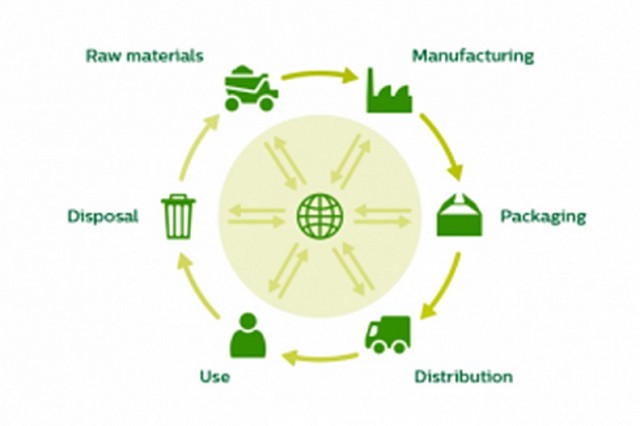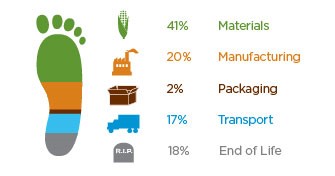Life Cycle Assessment (LCA) is a process that allows the environmental impacts of products or services to be measured and analysed. For example, emissions to air water, soil, health impacts, resources consumption can all be quantified. By quantifying environmental impacts the LCA process makes it possible to monitor changes over time and set goals and targets for improvement.
LCA is based on life cycle thinking which, as a concept, has been around for a long time and can be applied to products and processes as well as organisations and their supply chains. Taking a life cycle approach means that all stages of a production process are taken into account; from raw material extraction through to design, product use and then ultimate disposal.


LCA can be applied to an organisation, supply chain or processes to find out where the areas of biggest environmental impact are (both positive and negative). This way action can be taken to reduce the impact and look at ways of doing things differently. Is your biggest area of impact really where you think it is? That often-quoted adage of ‘if you don’t measure it then you can’t manage it’ is just as applicable to the environmental aspects of your business.
Conducting an LCA could end up saving money and resources, by identifying where the largest areas of impact are and then making changes could result in lower use of materials, changing to different and cheaper materials or reducing energy use - all of which could lower business expenditure.
LCA also allows benchmarking of products and services within your business and against competitors and the possibility of comparing environmental credentials. This could be useful as part of a marketing campaign or to promote a new product.
LCA can also be useful to organisations that want to look at options for new services /products or for environmental improvement on current operations, such as purchasing decisions, design changes and waste management solutions. Improvement plans can be linked to your Environmental Management System (EMS) as well as feeding into design decisions.
In summary, the uses for LCA are numerous and the level of analysis required depends on what question is asked and what you want to achieve. Here are some examples that may be relevant to your business:
• Developing Circular Economy approaches
• Eco labelling
• Environmental product declarations
• Carbon/Water footprinting
• Large scale LCA study
• Product and process benchmarking
• Eco design decision making
• Hot spot analysis
Contact us if you wish to discuss LCA or other environmental performance aspects of your business, tel. 01746 552423 or email info@frithrm.com













